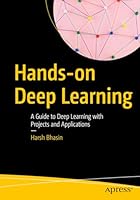
Flask Web Development from Scratch: Introduction to Developing Web Applications with Python
- Length: 126 pages
- Edition: 1
- Language: English
- Publication Date: 2019-05-20
- ISBN-10: B07S2ZV3KK
- Sales Rank: #265188 (See Top 100 Books)
Flask is a Python web application framework.
Flask makes it easy to create small applications and even extend them to larger applications.
In this book, you’ll learn how to create a new blog application from scratch.
It is organized so that you can learn about the kinds of technology necessary for developing web applications in each chapter while you are building them.
By reading through this book, you will naturally learn the basics of Flask: from developing the MTV framework, which is the concept of the Flask framework, implementing authentication through the creation of login functions, creating templates using Bootstrap or Jinja 2, and working with databases.
Table of Contents:
1. Introduction
2. Completed image of the blog application
3. Installing Python
4. Installing pip
5. Try running the application in a single file
6. Installing Pipenv
7. Create the startup file
8. Creating a config file – Allowing you to work with settings together
9. Understanding the Flask Framework – MTV Framework
10. Creating Templates – Templates in the MTV Framework
11. Introducing Bootstrap – Refine Your Design
12. Create a login form – Implement a form
13. Create a View – View in the MTV framework
14. Creating a base layout template
15. Working with sessions – Enabling secure logins through authentication
16. Add flash – Display a message to the user
17. url_for – Automatically Create Links
18. Work with databases
19. Model – Model in the MTV framework
20. Create scripts – make certain actions common
21. Learn about CRUD
22. Create Blog Posts – Create in CRUD
23. Create a Blog List Feature – Read in CRUD
24. Creating Blog Details – Read in CRUD
25. Create Blog Editing – Update in CRUD
26. Create a Blog Post Delete Feature – Delete in CRUD
27. Add static files – Allowing you to work with images and stylesheets
28. Create a decorator for login authentication
29. Splitting an Application with Blueprint
30. Writing Unit Tests
31. Measuring and Reporting Test Coverage
32. Final application structure
33. Closing Chapter







